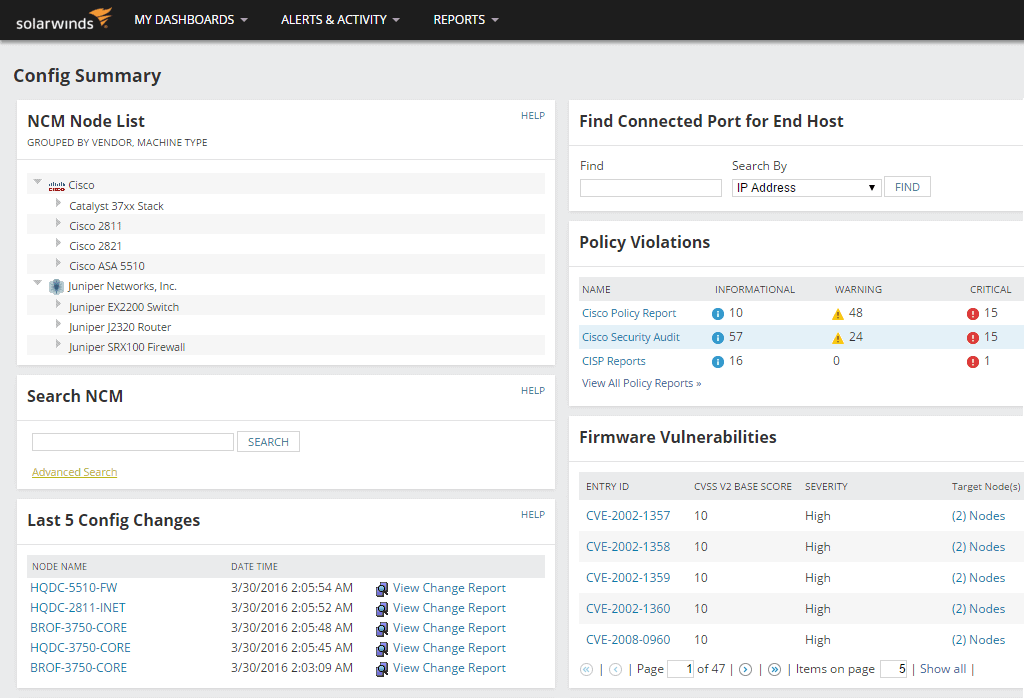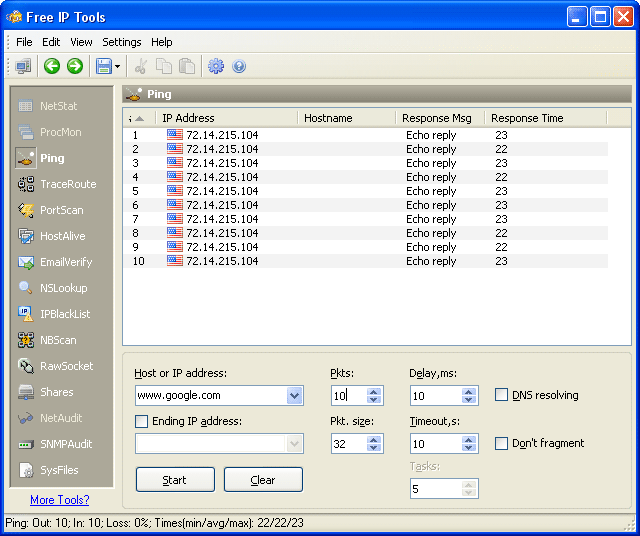

- FREE NETWORK UTILITY TOOLS SOFTWARE
- FREE NETWORK UTILITY TOOLS SERIES
- FREE NETWORK UTILITY TOOLS MAC
- FREE NETWORK UTILITY TOOLS WINDOWS
This translates into faster problem resolution and less downtime, which means better productivity for your employees and faster service delivery for end users.
For example, the right network utility software can support engineers with processes related to SNMP, ping, MIB, DNS, NetFlow, and other common methodologies and protocols. Network utility toolkits give network engineers the ability to automate a variety of technical tasks for faster network insights.
While an engineer could avoid using a toolkit by piecing together a series of tools from various solutions, this option is less effective, since they would need to find a way to integrate all the separate tools, and more expensive than using network utility software including all the tools they need. Network utility toolkits are different from other bundled combinations of network management tools because they’re specifically designed for network engineers and support the measures they must take to keep the network functioning properly. Why are utilities designed for network engineers important?.For instance, SolarWinds Engineer’s Toolset (ETS) is built to provide engineers with all the must-have and nice-to-have tools they need to perform a wide range of responsibilities quickly and easily. While there are many utilities a network engineer needs to perform successfully, what they need most of all is a toolkit incorporating all these tools within one network utility software solution.
MAC address scanning utility: Also known as the MAC network utility, this tool lets you search through subnets and construct tables relating MAC addresses to IP addresses, DNS, and manufacturer addresses.  WAN Killer Traffic Generator: This utility lets you study network activities (such as load balancing) without having to use real traffic. It also gives insight into port status, time of failure, and information as well as helping with capacity planning and helping you gain complete endpoint visibility. Switch Port Mapper: This utility lets you remotely discover the devices connected to every port on a hub or switch. This utility can send multiple packets at once and perform an ICMP sweep to scan your IP range. Ping Sweep: This tool reveals all available or in-use IP addresses. Just a few of the utilities network engineers need are: Engineers also need utilities to help with network analysis, so they can find and address the leading causes of network problems. They need tools to help them detect problems as soon as they occur, pinpoint their origins fast, and begin troubleshooting right away. Network engineers need the utilities to help them keep the network functioning properly. What types of utilities do network engineers need?. Security: These utilities help you secure the network against cyberthreats. Network administration: These tools monitor and manage key network and device elements like memory utilization, CPU, response time, and more. Log management: These network utilities help engineers generate insights related to data performance by helping them gather and analyze data logs. IPAM/DNS/DHCP: These utilities help with functionalities tied to IP addresses, like subnetting.
WAN Killer Traffic Generator: This utility lets you study network activities (such as load balancing) without having to use real traffic. It also gives insight into port status, time of failure, and information as well as helping with capacity planning and helping you gain complete endpoint visibility. Switch Port Mapper: This utility lets you remotely discover the devices connected to every port on a hub or switch. This utility can send multiple packets at once and perform an ICMP sweep to scan your IP range. Ping Sweep: This tool reveals all available or in-use IP addresses. Just a few of the utilities network engineers need are: Engineers also need utilities to help with network analysis, so they can find and address the leading causes of network problems. They need tools to help them detect problems as soon as they occur, pinpoint their origins fast, and begin troubleshooting right away. Network engineers need the utilities to help them keep the network functioning properly. What types of utilities do network engineers need?. Security: These utilities help you secure the network against cyberthreats. Network administration: These tools monitor and manage key network and device elements like memory utilization, CPU, response time, and more. Log management: These network utilities help engineers generate insights related to data performance by helping them gather and analyze data logs. IPAM/DNS/DHCP: These utilities help with functionalities tied to IP addresses, like subnetting.  SNMP: These network utilities help improve device management by offering SNMP-based capabilities and insights. Network discovery: These tools help engineers discover a network’s assets more quickly. It’s essentially a network traffic utility. Network monitoring: The network monitoring utility helps engineers monitor potential bottlenecks, device health, and bandwidth in real time.
SNMP: These network utilities help improve device management by offering SNMP-based capabilities and insights. Network discovery: These tools help engineers discover a network’s assets more quickly. It’s essentially a network traffic utility. Network monitoring: The network monitoring utility helps engineers monitor potential bottlenecks, device health, and bandwidth in real time. Whether a Mac or Windows network utility, it lets you find key health status data for specific devices on a network and general network connectivity.
Network diagnostics: These network utilities help engineers troubleshoot problems more quickly and accurately. All-purpose systems management: These tools offer overviews in the form of maps, charts, and graphs to help network engineers manage their systems more effectively. Network configuration management: These network utilities are critical for helping network engineers monitor and keep track of software and hardware changes within the network. The most useful tools are those in the following categories: 
Network engineers need tools to help them achieve comprehensive management and optimization of the network infrastructure. They’re often tasked with managing complex computer networks-a job made faster and easier when using network utilities designed to help with making plans for network optimization, measuring current performance levels, or implementing strategies effectively. Network engineers have a vast array of responsibilities to help maintain network performance.
What are the most useful tools for network engineers?.








 0 kommentar(er)
0 kommentar(er)
